SaVanna Wanzer has dedicated her life to trans education and representation
The tireless founder of 'May Is? All About Trans' empowers the transgender community, one teaching moment at a time

“I’ve learned in life that you can have as many sisters, brothers, uncles, aunts, and family you want by adopting people in the community who generate love,” says SaVanna Wanzer. “Whoever gives you love, you give that love right back to them.”
Wanzer’s life is all about love, from her personal relationships to her advocacy on behalf of her beloved transgender community. But acceptance has not always come easily to the 58-year old trans activist and health educator. While Wanzer’s identity was accepted by her birth and adoptive mothers, and some extended family members like uncles and aunts, most of her siblings struggled to accept her.
“At our last family meeting, I tried to bring about unity, let the family understand who I am as a person,” she says. “But they never let me in as a sister, and they still don’t identify me as a sister.
“One time, I reacted on social media, and expressed how mean my family was to me on that Zoom call. And I ended up getting little love notes all day. I had gotten so many messages, I must have busted open Facebook. But the last message, which I read around 10 or 11 p.m. that night said, ‘Words by Nina Simone.’ And this is what got me out of gloom and put me back up on my feet. They wrote, ‘You’ve got to learn to leave the table when love is no longer being served.’ And those words hit me. I guess that would be my ‘a-ha’ moment.”
Despite struggles with her biological family, Wanzer has adopted plenty of chosen family over the years. She has also dedicated herself to volunteering for various service organizations, including Us Helping Us, where she worked as a health educator, and Whitman-Walker Health, where she started as a volunteer and eventually became a member of the federally-qualified community health center’s board. Through her work and volunteerism, Wanzer found herself embracing and catering to others, including many trans individuals who had been rejected by their own families.
“At Whitman-Walker Clinic back in the day, for eight years, we hosted a Thanksgiving dinner…for around 100 individuals who just wanted to be around family,” she says. “We would just have fun all day long. People appreciated that, because not everyone can have a family Thanksgiving dinner, and that depresses individuals. I was depressed myself, but I shook myself off and said, ‘Well, what can I do?’ And food is the number-one ingredient that everybody wants to be a part of, especially if that food is good. And I was doing the cooking, so you know that food was good.
“People didn’t want to go home, because they knew that there was plenty of food and love. All the transgender organizers would come and tell stories, or the crowd would tell stories. The youth would be in another area playing or loving on each other. So it was just an atmosphere where somebody could walk in and know nothing but love.”
Through volunteerism, Wanzer became a fixture at some of the LGBTQ community’s major service-based organizations. As a member of Whitman-Walker’s board, she used her position to highlight the importance of trans-specific care and services, and proposed successful policy changes to help make Whitman-Walker more trans-inclusive.
In 2007, after years of pitching the idea, she finally convinced Pride organizers to establish Capital Trans Pride, a day in May where the focus could be placed on pressing issues within the transgender community. Eleven years later, she decided there needed to be more trans-specific events, and launched “May Is? All About Trans.” The virtual events are expected to draw more than 1,000 viewers over Zoom in the coming month.
It has not always been smooth sailing. When Wanzer first proposed the idea of Trans Pride, she was told by organizers that the presence of drag queens providing entertainment at Pride provided enough trans representation, underscoring the need for more education about the transgender community.
Grateful to the volunteers and board members who have helped make her endeavors possible, Wanzer sees hope for the trans community’s future as it fights for greater societal acceptance and more resources.
“I believe that everyone should be included, that nobody should be excluded for looking different,” she says. “Everyone should have the right to fill out an application for housing and not have their application torn up after they leave because you don’t want this individual to live in your dwelling. Everyone should have the right to pay for their bills, by being employed, or given the opportunity to better themselves.
“We want public figures to not only say they support this community, but fund this community, give us training programs, so we don’t have to do sex work to survive, because we’re rejected by our parents and have no roofs over our heads,” she says. “We want trans people being respected, loved, and cared for…. It’s all about love, understanding, and strengthening communities.”

METRO WEEKLY: You’ve been in the community for a long time, but not a lot of people know about your background.
SAVANNA WANZER: Well, first of all, I’m one of the few native-born Washingtonians. I was reared in the Upper Northwest area of D.C., and lived in the same house for 56 years. I’m a fun-loving, giving, volunteer and community-oriented individual. And my main goal is to have true inclusion and true visibility in my community.
MW: What were you like as a child?
WANZER: My personality was mischievous. I was a bad kid. [Laughs.] I was shared by two families, my birth mom and my bonus mom. My mischievous part was to gain more gifts during Christmas. So to one side of the family, I’d say, “Oh, mommy won’t buy me this, and I wanted da-da-da for Christmas.” Then I’d go to the other side, and I’d say, “Oh, mommy won’t buy me da-da-da.” So that was an example of one of the events of me being a mischievous child, to get extra gifts as a child.
But I had a strict upbringing, such as being on the porch at a certain hour. I wonder if they still have that rule: you be on your porch when the street lights come on. And all the kids in the neighborhood, we played and fought, but we got up the next day and we played together. So we weren’t killing or bruising or really hurting or bullying each other. We were a large community, and we all just got together. There was no judgment. Judgment came later on when I identified with who I wanted to be, living my truth and being rejected by my siblings. That’s where the hurting part of life came about.
MW: Did you ever rebel against your strict upbringing?
WANZER: No. I was very obedient, because that’s the way I was brought up — to obey, to follow instructions, and do what is expected of you. Later on, when I got to partying age, that’s when I identified more as myself, and I left the block and ended up going into the community and finding out who SaVanna is going to become.
MW: At what age did you first know that you felt like SaVanna?
WANZER: I felt like SaVanna at a young age, but I didn’t identify as SaVanna until later, after I had finished my professional career and everything in the federal government. I felt, with so many phobias about the transgender community, I always wanted to maintain money. And you know, that is what makes the world go ’round, so we had to hide secrets and be who we wanted to be only on weekends.
MW: What was your role in the government?
WANZER: I got a job under this program called the Work-Study program under Marion Barry. And that’s when I attended High Point High School for four hours, and would go to work in the federal government for four hours. And that’s when I was skill building and had mentors to help me in my professional career.
I started out as a delivery person at the Department of State. And then, after I came out of high school, I passed my civil service exam, and accepted a clerk/typist job there. I worked there for around maybe five years, and then I went to the Department of Veterans’ Affairs. I worked there until I retired in ’99, after I had my cardiac surgery.
MW: What was that dichotomy like, in terms of work versus personal life, where you could only be yourself on weekends? Where would you go and what would you do?
WANZER: My work day was Monday through Friday, 8:30 a.m. to 4:30 p.m. And then I would stop at the liquor store on Friday, and start being SaVanna. I would come home, pour me a drink, get me a joint of marijuana, turn the music on, and I began to get ready for that weekend. At the beginning I did not change at home. I would pack a bag and change over at a friend’s house, and then we would go out into our community as who we wanted to be.
I guess I was 17 years old the first time going out into the community. We came out day-by-day at Franklin Park downtown, which was across the street from an old club called The Brass Rail. And at The Brass Rail, everybody could get in free until 8 p.m. So we were playing in Franklin Park, until around 7:30, 7:45, because we knew they kept their clock 15 minutes faster, so we knew we had to be getting there by that time.
Back during those days, we did this dance called “The Hustle.” And the older people would say, “Oh, Lord, here comes those young things. They are going to take up all the dance floor with that hustling.” So we were all thin and beautiful back during those days, and we had the top dance teams that would get on the dance floor. We’d challenge each other with new moves every weekend. That was all the fun part of coming out.
Then addiction hit me. I got too fond of alcohol, and too fond of marijuana. And I tried other drugs, but it just didn’t work with me. It didn’t give me that feel of happiness and energy. The other drugs that I tried gave [a sense of] gloom, and it just wasn’t for me. I liked laughter, and so the combination of alcohol and marijuana was my fix. And I became addicted. And I was out there for a good 20 years of drinking.
I started working on my recovery about 29 years ago. This will be my 30th anniversary in January. After I stopped drinking, I ended up having a bad heart condition. And it flared up after I stopped drinking, because the alcohol was preserving the pain and keeping the heart flowing. So my body wasn’t receiving that stimulus any longer, and that’s when I had experienced worse heart problems. I had to have cardiac surgery as a result.
My recovery turned out to be the best thing for me, because I had a chance to love and understand more about SaVanna. I had an opportunity to help out my community sober, and get things together professionally.
MW: Since we’re talking about your journey of self-discovery, when did you finally meld the two worlds of work and personal life?
WANZER: I melded the two worlds after I went to visit San Francisco during Pride. I’d been to several Prides here and there, Black Prides, Atlanta Prides, celebrations here in Washington. And then, when I went to San Francisco, the Mother Pride, the theme was “Stand Up, Stand Out, and Stand Proud.” And I have lived by those words from that day forth. I came home and got rid of all of my Monday through Friday gear, which represented a male, donated it to Damien Ministries, suits and ties, everything. And then from that point on I went and lived as SaVanna, because I wanted to live my life of who I identified as, and wasn’t nothing going to block me.
When I became a woman 24/7, and I let the world know it, I knew that it was going to be a fifty-fifty chance of being accepted and not being accepted by family, friends, and churches. So those that did not respect me, I just had to learn how to adjust without that individual. I kept in mind that one day we will reunite. They will understand that my transgender lifestyle is not about sex, it’s about gender identity.
MW: You were talking earlier about your family struggling with your identity. Was there anybody who was a source of comfort for you, or somebody you looked up to as a mentor?
WANZER: My oldest sister. Her name was Patricia Ann. And this is why I always know hate is taught. Because this sister said that this is family, we’re going to love SaVanna regardless. And she taught her children to respect SaVanna for SaVanna, and they love me. But that’s only one sister, and I still have other siblings that I tried to build relationships with, but they wouldn’t let me.
MW: Did you know any other transgender people who had come out prior to you who were an example to you?
WANZER: I knew that my friends had come out as trans, and some of them had tragic stories like myself, and some of them had good-luck stories. The main people I cared about accepting me, were my mothers. Both of them accepted me, and they just gave me the acceptance I needed to go on. We maintained our close relationships until their deaths. Their words of wisdom have taken me through a lot of storms.
MW: How did you first get involved with Whitman-Walker?
WANZER: I got involved with Whitman-Walker when people were being diagnosed more and more with HIV and AIDS. We couldn’t go to the hospitals and all the clinics, because we were looked down on. There was just one place that respected individuals, but they were known as a gay white clinic, so a big stigma in the African-American community. We came up with creative ways to make sure that we could still receive these services. Of course, we did the hoodies and the glasses. But also we went another level and created a line-standing program, where individuals that did have courage enough would stand in line for someone, then we would bring them in through another door, and then that would be the examining room that the individual would go to. So the original waiting room would never, ever see this individual. And they would receive their prescriptions, their medicine, their great care. And that encouraged them to be able to walk through that front door sooner or later, because they realized that this is more than just a clinic, this is a family environment.
When people volunteered in those days, they cared. People such as Alice Rosenberg, who everyone loved to death. She was just like the mother in the day of the pandemic when it first started. And Dr. Pat Hawkins. These were the originators that made sure that everybody had legal representation. And, of course, Jim Graham. He remembered me from before I was out as SaVanna, and he commended me, saying that I turned out to be a beautiful woman. I can remember us packing things when we had the food bank, when it was on S Street. I can remember being with him, talking with him, and his dreams and his visions turned out to be what Whitman-Walker Health is now.
I remember when the police would come in Whitman-Walker, and wanted to get names of people that were clients, and get names of people who were infected. And they would publish the names of individuals, and that was the worst thing ever. We were able to maintain our records, because we had created a chapel, because we were dying rapidly, with three to five funerals a week, and AZT was killing us even quicker. So in this chapel, we had a coffin, and in that coffin, we would hide the medical records. And the police were scared to go inside that room, and scared to go and check inside that coffin. So that’s the only reason a lot of people who were infected remained anonymous.
MW: Once the epidemic started to become more controlled, how did you shift your role at Whitman-Walker?
WANZER: Well, my role was active at Whitman-Walker. I was volunteering there for 28 years and so often that people would say, “Oh, you ain’t gonna work today?” I was so visible that people would call me and ask, “What’s your hours?” I did everything from answering the telephone, to volunteering at the Austin Center [at 1407 S St. NW], from helping out with the food bank to tabling at the AIDS Walk, passing out information.
MW: How did you become a board member at Whitman-Walker?
WANZER: There was this doctor who ran and created the transgender clinic, Dr. Bryce Furness. And it was Dr. Furness who helped mold the board member SaVanna. He put me on the board so that there could be a voice for transgender individuals. While I was on the board, I recalled negative experiences that had happened to me, and advocated to make sure nobody else would have to feel the same way. So for instance, we had the waiting room, and if you identified as being transgender, they’d holler out your birth name. I was in the lobby once, when I was just discovering SaVanna, and I had on my prettiest outfit, face made up, hair done all up, and they called out this boy’s name. I really felt hurt and ashamed getting up to receive services, because I identified as a totally different person.
So when I went to the board, I said we have to come up with another way that you don’t have to be identified by your legal name. So we came up with a sheet, and put in their billing name, and the name by which they would like to be addressed. And then we had another division to go through, because after you went to the doctor, then you had to go to the pharmacy to get your medicines, pills. And it was just another waiting room for them, then they were calling the name that was on your pharmacy bottle. Now, that name had to maintain your legal name, so they would call that name out again. And so then we created another training for the pharmacy, and now everything was in unison. You would be respected from the time you entered the door to the time you left pharmacy and went on with the rest of your life. These are the steps that I helped create as a board member.
MW: What was the process behind founding Trans Pride.
WANZER: Now first of all, if I wasn’t a part of Whitman-Walker, there would have been no Trans Pride. I went two years in a row, telling the directors that worked with Capital Pride that there needs to be a transgender event. I would always get, “No, no, no.” I was treated very badly by gay, white men that rejected the idea of having a ceremony just for the transgender community. And it was another woman, ReGina Newkirk, who came in and was the director of events, community engagement and something else — some long, fancy title. But she and Dave Mallory, who ran the AIDS Walk, went to a Capital Pride meeting, and there wasn’t any representation for women, people of color, nor the transgender community. I went and talked to them directly, and that’s when the idea was approved. And people were so happy that we could have a whole day just focused on the transgender community, they couldn’t believe it. It was like we found the answer to cancer. It hit the community like that, and everybody wanted to be a part of it.
First we had to find a location. One of our volunteers was a church member at Westminster Presbyterian in Southwest D.C., and I had to do a site visit with the pastors, Reverend Brian Hamilton and Reverend Ruth Hamilton. They said, “Well, now that you’ve had the tour, we want you to know that we are a loving church, and please come back and visit.”
At that time of my life, I was looking for a spiritual place, because that’s when I was thriving, somewhere where I could worship God and not be judged. So I came, and as of today, I have not left Westminster.
Westminster has played such a big roll in the history of the transgender community. First, they housed the first transgender event at 2007, and we had 167 participants, 20 organization tables. And now we have grown to over 45 organization tables, and to over 700 participants. And Westminster, this year, has called me up and said, “Well, SaVanna, we would like to make a donation, a large donation, to ‘May Is? All About Trans.’ And also, we have created a 39-foot banner that we’re going to put over our church walls that say, ‘We support May Is? All About Trans.'” Now, is that not the greatest honor ever? I get choked up thinking about how a church opened up their doors and has accepted the community since 2007.
At the beginning of developing Trans Pride, I would always say, “You’ve got to be trans to do this. You want a speaking role? You’ve got to be transgender. You want to do a workshop? Nope, you’ve got to be transgender.” And then someone told me, “SaVanna, I just want you to know that the Civil Rights Movement was not done by colored people only.” And that was a learning moment, that everybody wants to add to the history of the trans movement in Washington, D.C. And whichever way that they want to do it, I open up the doors and allow them to do it.
However, I do have certain rules and regulations: One rule is that if you are advertising within the souvenir guide, the advertisement must be in trans likeness or trans colors. The rainbow flag does not equal the transgender community. It’s accepted, but we have our own flag and colors that represent our community.

MW: Why did you feel there was a need for “May Is? All About Trans?”
WANZER: The reason “May Is? All About Trans” was created is because transgender issues were only being talked about on the day of Trans Pride, the third Saturday in May, and our topics could only be talked about up to 50 minutes. So I came up with the idea of having up to three hours to talk about a topic that affects our community, and along with that, they will receive dinner. I’ve raised money so we could have food, and share what could be life-saving information. And you don’t have to be underneath the trans umbrella to attend — you might have a son or daughter who is trans that you want to know more about their life. So you get to learn how you can become an ally.
There is still a need for more trans-specific events to be held by every organization. You always see in the mission statement, organizations saying we represent the LGBTQ community, but when you go to them, they don’t have a mental professional that knows about transgender issues. They don’t have a doctor to dispense hormone therapy, or don’t have any information about how even to begin to start on hormone therapy. So we have a problem because some people highlight the “T” in their grant-writing to receive money, and none of that money is used in the transgender community.
MW: It’s an all-virtual event?
WANZER: For the second year in a row, yes.
MW: And it starts on April 30?
WANZER: Yes, there’s the kickoff party meet-and-greet that is hosted by one of our sponsors, Stoli. The meet-and-greet is just a chance for people to see other members of the transgender community. They get to meet all the sponsors, the panelists. And we have nice music where we can get a little jiggy. Locally, people will receive a party pack. So Stoli has provided us with liquor bottles to pass out to the community, and they’ll be delivered to the individual. And the only thing they will need is Zoom and ice. Everything else in this package will be received, such as promo items from our organizations, liquor, chips, juice, candy, nuts, pretzels, everything will be in this party box.
MW: What breakout events are taking place this year?
WANZER: We have a trans-masculine event and a trans-feminine event, where people can sit down and have an hour-and-a-half to talk about issues and leave with a message, or knowing more than you did when you came into that room.
MW: And then you have an event for elderly or aging trans people?
WANZER: Yes. We call that Sage and Loving and those community members who have been around for a while are going to tell their stories.
Another thing is events for communities that have [historically] been left out — the Asian Pacific Islander community, that’s something that needs to be in everyone’s Pride line-up. And the Latinx community. We have Latinx youth and adult town halls in Spanish and English. So there’s something for every community member. And we have conversations with allies about how to strengthen your allyship to help out transgender individuals. We also have people that are in recovery in the transgender community, so they’ll be represented.
All of the 91 panelists throughout the month will be members of the transgender, gender-nonconforming, or nonbinary communities. I’ve reached out to friends, and I’ve included people from 20 other cities, four cities in California, two in Hawaii, three cities in New York, and the list goes on. We have panelists coming from different places, and they network within their communities. And Zoom has turned out to be a blessing, because now we can include so many people.
MW: You also have some fun nights, correct?
WANZER: Yes, we have an open mike and a movie night, and we’re trying to get a movie that is designed for the transgender community, and also has the director, or the actors, participating in the Zoom conversation. So we have people just sitting around the table that represent different communities, and they’ll tell how they feel living as this gender representative.
MW: You have 27 events in a month with 31 days. How are you able to keep people’s attention and interest throughout the entire month?
WANZER: All right. Now first of all, everyone doesn’t attend every event. The only foolish person that attends every event is me. [Laughs.] But people go through the itinerary and look at what topics interest them the most, and then they reserve a spot and then they learn about that item. But what makes my job easier, I have a board, and the board hosts two events apiece. So the only thing I need to do is come into the meeting and learn, so for those events I can sit back and take off the lady-boss hat, and sit back and just enjoy the conversation like everyone else.
MW: Are there limits for how many people can RSVP to an event? Or is it come one, come all?
WANZER: It’s come one, come all, every one, every community, everyone is welcome. And the topics will be livestreamed and posted on our YouTube channel, so people can come back to review something if they missed it.
Also, one of our largest events, which is Trans Pride, is being chaired by Ian Brown, who is a board member, and Bianca Rey, who has chaired Trans Pride for four or five years. And they’ve found an app company that’s turning that event into a conference-style event. So there will be four events in the morning, going on simultaneously. There will be a keynote speaker, lunch on your own, in your residency. We’ll have people doing virtual tabling. And then we pick up in the evening with the last four workshops. So it’s a full day, and it’s just going to be just the way it was when you were going in person to Eaton [Workshop] or Studio Theatre.
MW: What is your response to people who say you’ve been so involved for so long that you should take a break, step down, or retire? How long can you keep going, being an activist and advocate?
WANZER: Well, I say the same thing every year, at the end of the season: “That was my last celebration. I’m going into retirement. You won’t see me no more, SaVanna is giving up, she did enough.” And then two or three weeks later, I realize that this is in my blood, it’s a part of me, it’s my life. I will continue networking until I’m long gone, and on my tombstone it will say, “Now I can rest. Now I’m truly in retirement.”
The celebration of “May Is? All About Trans” includes 27 events taking place from April 30 to May 29. All events will be close-captioned and ASL-interpreted. For more information, or to register for specific events, visit www.mayistransdc.com.
Read More:
Year of the Serpent: Musician serpentwithfeet is ready to share his joy
Colman Domingo brings his masterful ‘A Boy and His Soul’ to Round House Theatre
Support Metro Weekly’s Journalism
These are challenging times for news organizations. And yet it’s crucial we stay active and provide vital resources and information to both our local readers and the world. So won’t you please take a moment and consider supporting Metro Weekly with a membership? For as little as $5 a month, you can help ensure Metro Weekly magazine and MetroWeekly.com remain free, viable resources as we provide the best, most diverse, culturally-resonant LGBTQ coverage in both the D.C. region and around the world. Memberships come with exclusive perks and discounts, your own personal digital delivery of each week’s magazine (and an archive), access to our Member's Lounge when it launches this fall, and exclusive members-only items like Metro Weekly Membership Mugs and Tote Bags! Check out all our membership levels here and please join us today!









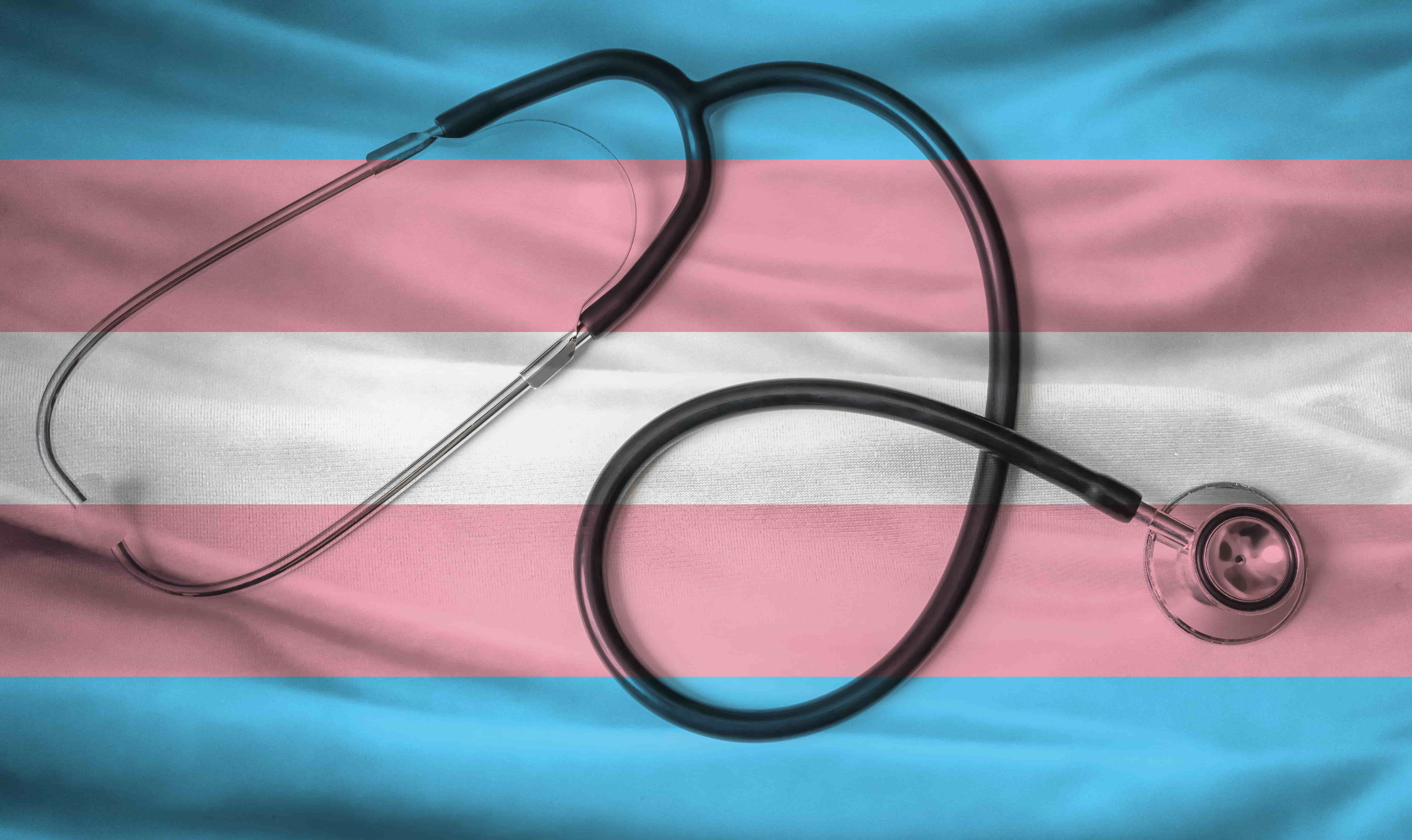
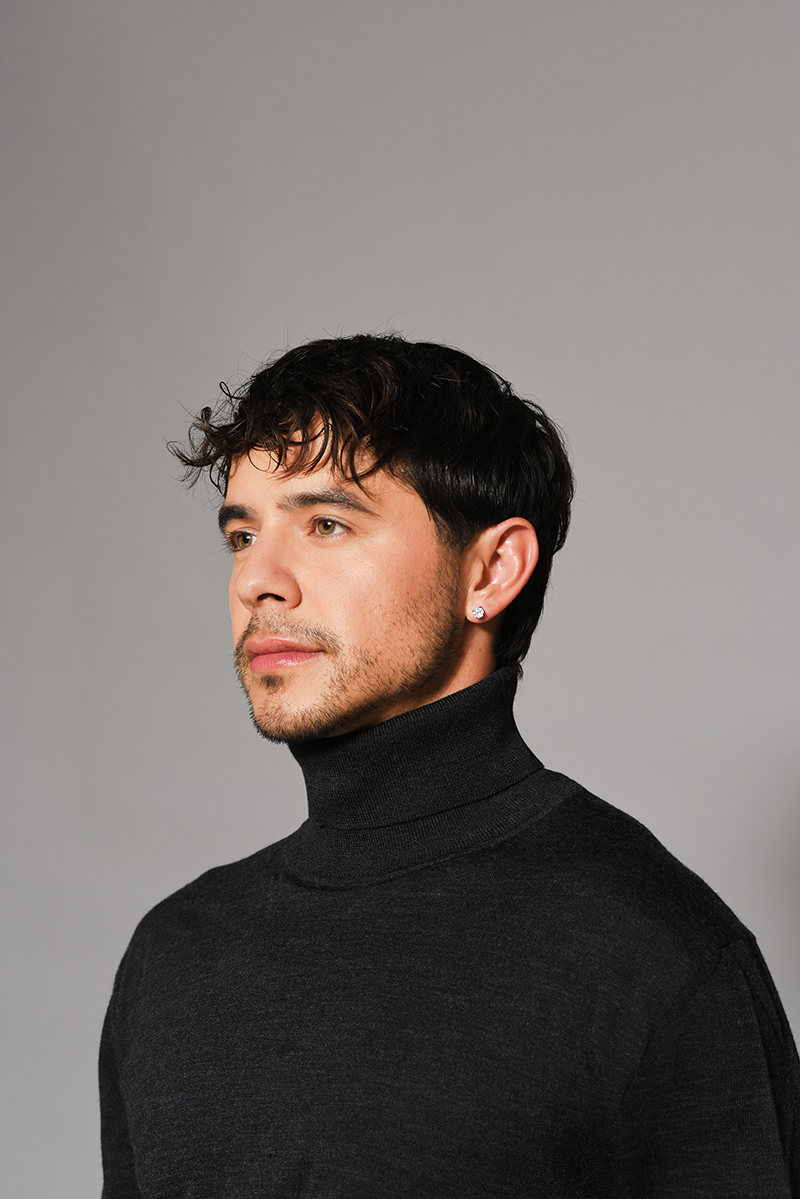
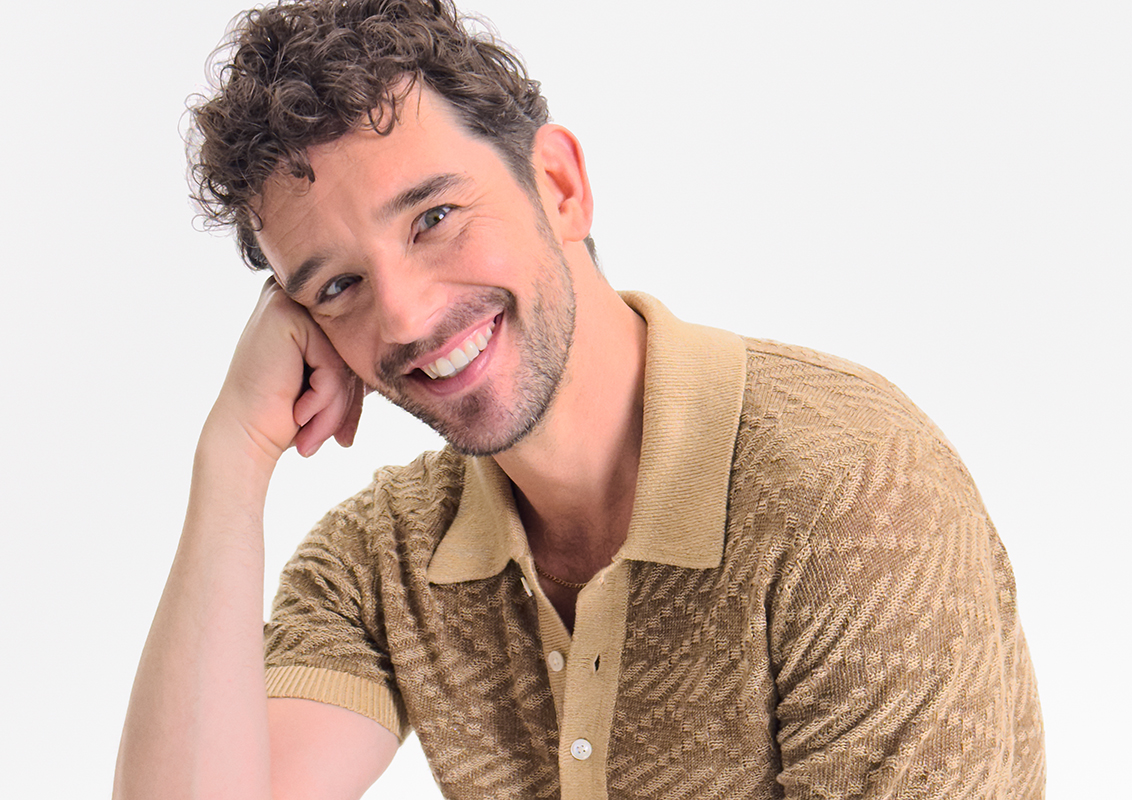













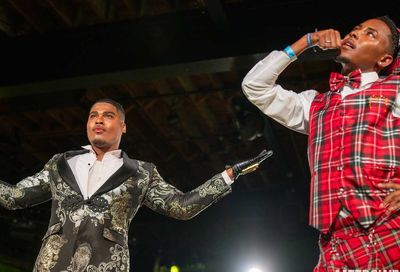
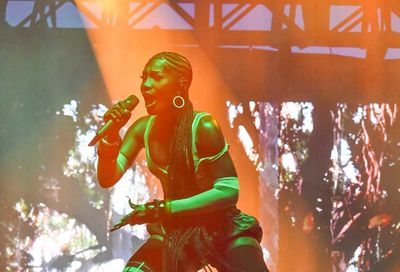
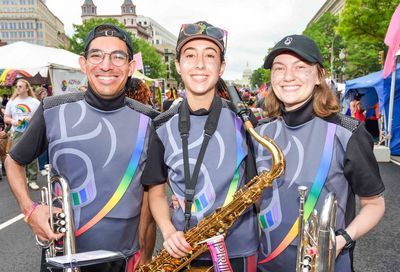
You must be logged in to post a comment.